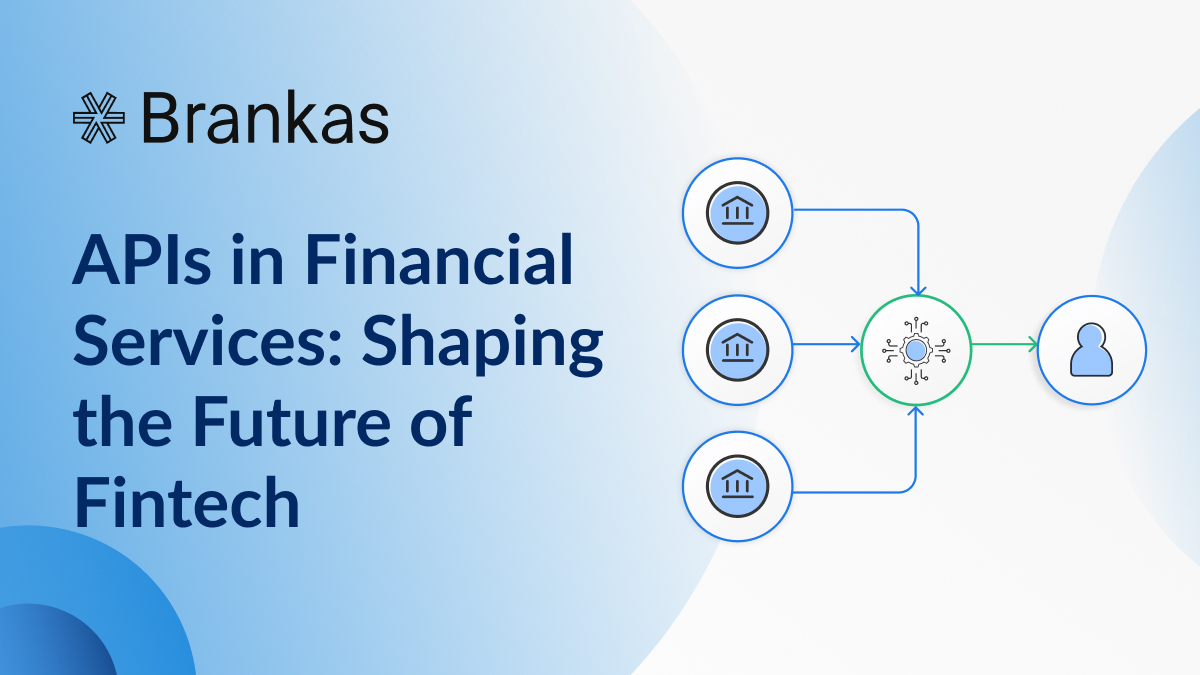The future of financial services is being reshaped by the rapid evolution of Application Programming Interfaces (APIs). As the financial industry becomes increasingly digital, understanding how APIs in finance can transform services is essential for businesses and consumers alike.
This blog will explore the role of APIs in financial services, their benefits, and their potential to revolutionize the industry.
What is a Financial API?
At its core, a financial API is a set of protocols that allow different software applications to communicate with each other. In the context of finance, these APIs enable seamless data exchange between financial institutions, fintech companies, and third-party developers. This connectivity facilitates various services, from payment processing to account management and beyond.
APIs in finance are critical because they provide the infrastructure that allows for innovation and efficiency. By enabling different systems to interact, APIs eliminate the silos that traditionally existed within financial services. This integration fosters collaboration among banks, fintech ecosystems, and other service providers, ultimately benefiting consumers through enhanced services and products.
The Rise of Open Finance
The concept of open finance is gaining traction as more organizations recognize the value of sharing data through APIs. Open finance expands on the principles of open banking by allowing consumers to access a broader range of financial products and services from multiple providers. This shift is driven by consumer demand for more personalized and efficient financial solutions.
With open finance, APIs become the backbone of a more interconnected financial ecosystem. They allow consumers to aggregate their financial data across various platforms, enabling better decision-making and more tailored offerings. For instance, a user can connect their bank account to budgeting apps or investment platforms via financial API integrations, creating a holistic view of their finances.

Benefits of APIs in Financial Services
The integration of APIs in financial services offers numerous advantages that are transforming the industry and enhancing the way businesses interact with their customers. Let’s take a deeper look into these benefits to understand how APIs are reshaping the financial world.
1. Increased Innovation
APIs are a catalyst for increased innovation within the financial services industry. By providing developers with the tools necessary to create new applications and services, APIs foster a culture of creativity and exploration. Fintech companies can build on existing banking infrastructures to offer unique solutions tailored to specific customer needs.
This innovation is evident in the rise of various fintech applications that enhance traditional banking services. For instance, budgeting apps that integrate with users' bank accounts via APIs allow for real-time tracking of expenses and income management. Similarly, investment platforms can utilize APIs to offer users access to stock trading directly from their banking apps.
Furthermore, as competition intensifies in the fintech space, traditional banks are increasingly adopting API strategies to keep pace with agile startups. By embracing an API-centric approach, banks can quickly adapt to market changes and consumer demands, ensuring they remain relevant in an evolving landscape.
2. Enhanced Customer Experience
One of the most significant advantages of integrating APIs in financial services is the enhanced customer experience they provide. Now more than ever, consumers expect quick and efficient service. API payment solutions enable faster transactions and better service delivery by allowing customers to access their accounts, make payments, and perform transactions in real-time without delays. For instance, when a customer initiates a payment through an app that utilizes financial APIs, the transaction can be processed almost instantaneously, reducing wait times significantly.
Moreover, APIs facilitate seamless interactions across multiple platforms. Customers can manage their finances from various devices—be it a smartphone, tablet, or desktop—ensuring that they have access to their financial information whenever they need it. This convenience fosters greater engagement and satisfaction, as users can easily track their spending, view account balances, and receive real-time notifications about their transactions.
In addition to speed and accessibility, APIs also enable personalized experiences. Financial institutions can make use of customer data gathered through APIs to tailor services and recommendations based on individual preferences and behaviors. For example, a banking app might suggest budgeting tools or investment opportunities based on a user’s spending habits, enhancing the overall user experience.
3. Cost Efficiency
Implementing APIs can lead to significant cost efficiency for financial institutions by streamlining processes and minimizing manual interventions. Traditional banking operations often involve tedious paperwork and lengthy procedures that can drain resources. APIs automate many of these tasks, allowing banks to reduce operational costs while improving service delivery.
For example, APIs can automate routine functions such as account verification or transaction processing, which traditionally required human involvement. This automation not only speeds up operations but also reduces the likelihood of errors that can arise from manual handling. Consequently, banks can allocate resources more effectively toward strategic initiatives rather than administrative tasks.
Moreover, by utilizing third-party APIs for specific functions—such as payment processing or fintech fraud detection—banks can avoid the costs associated with developing these capabilities in-house. This flexibility allows institutions to focus on their core competencies while leveraging external expertise to enhance their service offerings.

4. Improved Security
The stark reality is that data breaches are becoming increasingly common, so improved security is paramount for financial services. Modern APIs often come equipped with stringent security features designed to protect sensitive financial data during transactions. By utilizing secure authentication methods such as OAuth or two-factor authentication (2FA), APIs ensure that only authorized users can access critical information.
Additionally, encryption protocols safeguard data both in transit and at rest, minimizing the risk of unauthorized access or data leaks. These security measures are essential for maintaining customer trust—a central factor in the competitive financial landscape.
Furthermore, APIs facilitate compliance with regulatory requirements related to data protection and privacy. By implementing standardized security protocols through APIs, financial institutions can streamline compliance efforts while ensuring that customer data is handled responsibly.
5. Regulatory Compliance
As regulations around data sharing evolve globally, regulatory compliance has become a critical focus for financial institutions. APIs play a key role in helping organizations comply with these requirements more efficiently. They facilitate secure data sharing while maintaining customer privacy—an essential aspect of regulatory frameworks like GDPR in Europe or CCPA in California.
For instance, open banking initiatives require banks to provide third-party providers access to customer account information and disbursement solutions through secure APIs. This not only enhances competition but also empowers consumers by giving them greater control over their financial data.
Moreover, APIs simplify reporting processes by automating data collection and submission required for regulatory compliance. Financial institutions can generate reports more efficiently without manually collating information from disparate systems.
The Future Landscape of API in Finance
As we look ahead, the potential for API in finance is vast. Several trends are emerging that will shape the future of APIs in financial services:
1. Increased Collaboration Between Banks and Fintechs
The collaboration between traditional banks and fintech companies will continue to grow as both parties recognize the benefits of working together. Banks can leverage fintech innovations through APIs while fintechs gain access to established customer bases and regulatory frameworks.
2. Expansion of Embedded Finance
Embedded finance refers to integrating financial services directly into non-financial platforms or applications. For example, e-commerce platforms may offer payment processing and peer-to-peer payments directly within their checkout systems using financial APIs. This trend is likely to expand as more businesses seek to enhance customer experiences by providing seamless payment options.
3. Greater Focus on Personalization
As consumer expectations evolve, the demand for personalized financial products will increase. APIs enable businesses to analyze consumer data effectively, allowing for tailored offerings that meet individual needs. This personalization will enhance customer loyalty and satisfaction.
4. Enhanced Data Privacy Measures
With data privacy concerns on the rise, the future of APIs in finance will likely involve stronger measures to protect consumer information. Financial institutions must adopt best practices for data handling while ensuring compliance with regulations like GDPR or CCPA.
5. The Role of Artificial Intelligence
Artificial intelligence (AI) will play a significant role in shaping API finance by enabling smarter decision-making processes within open finance solutions. AI algorithms can analyze vast amounts of data from various sources via APIs, providing insights that drive better product offerings and enhance customer interactions.

Embracing the Future with APIs
The future of APIs in financial services is bright and full of potential. As we move towards a more interconnected digital economy, embracing API finance will be crucial for businesses seeking to remain competitive.
Financial institutions must invest in developing strong API infrastructures that facilitate collaboration with fintechs while ensuring security and compliance with regulations. By doing so, they can enhance customer experiences, drive innovation, and position themselves as leaders in this rapidly evolving landscape.
Understanding what a financial API is and how it operates within the complex finance world is essential for anyone looking to navigate the future of financial services successfully. The integration of APIs will not only reshape how we interact with our finances but also pave the way for a more inclusive and efficient financial ecosystem where consumers have greater control over their financial journeys.
Unlock the potential of your financial services with Brankas! Our powerful API services streamline your financial processes and enhance customer experiences.
With Brankas, you can easily integrate lending functionalities into your platform, offering seamless loan applications, instant credit assessments, and efficient fund disbursements. Say goodbye to lengthy approval times—our APIs reduce the process from days to minutes. Get in touch with us today!
